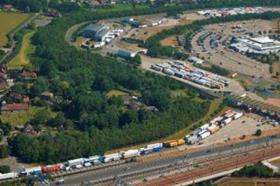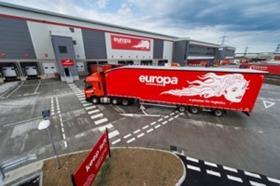The Home Affairs Select Committee has been told that a significant proportion of UK exports will get delayed if customs clearance is reintroduced as a consequence of Brexit, and the government needs a "big step change" to deliver the promise of "frictionless trade".
Yesterday the committee took oral evidence on the implications of the UK’s exit from the EU and withdrawing from the customs union. Among those in attendance and representing the industry were Andrew Baxter, MD, Europa Worldwide Logistics; James Hookham, deputy chief executive at the FTA and Jack Semple, policy director at the RHA.
Hookham told the committee, chaired by shadow home secretary and Labour MP for Pontefract and Castleford Yvette Cooper, that there were many issues the government needed to consider in order to deliver a seamless exit from the customs union and create conditions for “frictionless trade” with the EU – as promised by prime minister Theresa May.
“Are the computer systems and the arrangements that customs have in place big enough to cope with what is a really big step change in the number of transactions that they need to do?” he said. “Some estimates are that there will be around 300 million additional transactions and declarations a year. Will the computer systems cope, as well as the actual resourcing of that enforcem

ent by customs?”
He also urged the government to consider rethinking how customs enforcement is conducted – “so as to be less intrusive” and also issued a reminder to government that it had been a long time since businesses that trade with the EU had had to worry about customs clearances – so there would be “a learning curve for shippers, forwarders and carriers”.
“We should absolutely and categorically try to avoid physical checks on vehicles in our ports. I’m not denying that some of those checks will need to be done, but, as you’ve been hearing, a lot of ports—especially Dover, where the bulk of this traffic is moving—simply don’t have the physical space,” Hookham explained.
“Because of the nature of the supply chains and the goods that are moving, there’s no time; there are perishable goods and other time-sensitive goods that simply cannot tolerate that kind of intervention. One would hope that, in this intelligence-led digital era, there is no need for traditional physical interventions, which perhaps we experienced the last time we were there,” he added.

Europa’s Baxter warned the committee that if customs clearance is reintroduced, it would put delays into the distribution of goods.
“A big factor in that is the times customs is open or not in customs offices all over Europe,” he warned. “This is not a matter of EU policy or decided by the EU; it is about what customs is doing at the local level in countries all over Europe. I am not even sure this is matter than can be negotiated in the negotiations.
“The reality is that a significant proportion of our exports will get delayed if customs clearance is reintroduced; what exact proportion that is, I am not sure. If anyone thinks that they won’t, they are mistaken.”
Baxter has previously described the referendum result on 23 June 2016 as "a great day for haulage".
Meanwhile the RHA’s Semple (pictured below) looked at the case of cross border trade between Northern Ireland and the Republic of Ireland. He said that RHA members conducting such trade were very worried about the impact of leaving the customs union and could not see “an easy solution”.

He also explained that the economic integration of trade between Northern Ireland and Ireland is at a far more advanced level than it is between the UK and continental Europe: “Much of that trade has developed over the years within the framework of the EU to quite a high degree within Ireland,” he said.
“On a point related to employment, we have had concerns from a number of members in Northern Ireland about the ability to bring in skilled workers: workers that we require in what is, we must remember, an essential industry,” he told the committee.
“Depending on how that plays out, I think we will have members potentially looking at moving to the Republic of Ireland in order to have a different regime for the employment of drivers,” Semple said.














